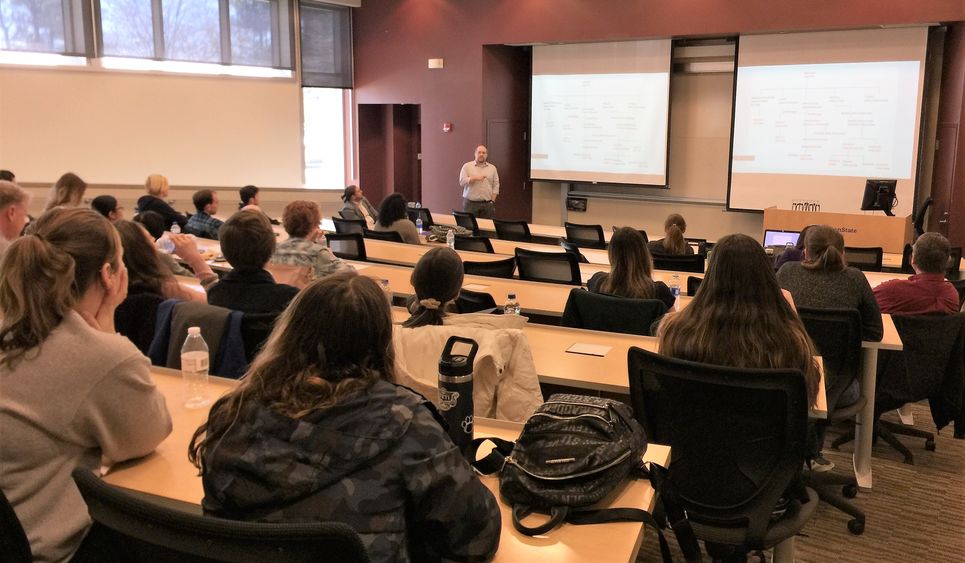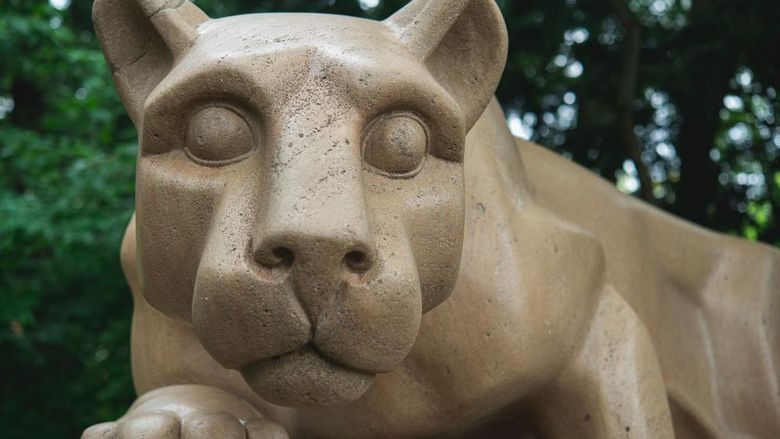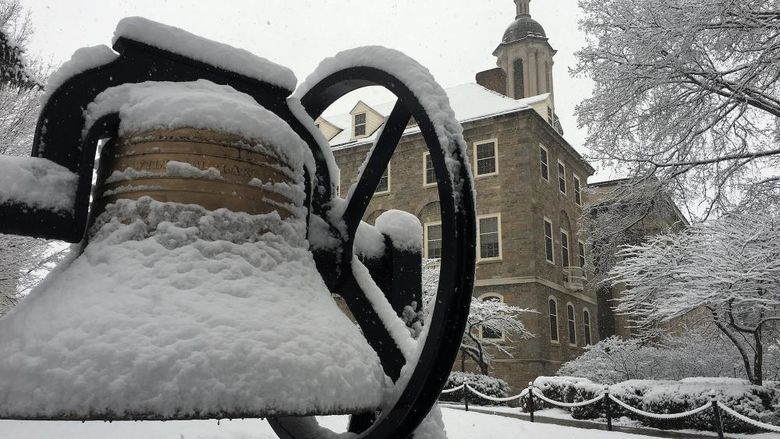
Paul Frisch, lecturer in history, arts and humanities, speaks to a full room at this year's last Lunch and Learn lecture, a series that takes place throughout the academic year allowing faculty and students to give presentations to the campus communitiy on their research, projects, and areas of interest. Frisch's lecture was a colorful recounting of Parliament’s activities in 14th-century England.
DUNMORE, Pa. — Paul Frisch, lecturer in history, arts and humanities, delved into medieval English history for the final Lunch and Learn lecture of Penn State Scranton’s spring semester.
Frisch’s talk, “The Wonderful and Merciless Parliaments: Or How I Stopped Worrying and Learned About Medieval Treason,” was a colorful recounting of Parliament’s activities in 14th-century England.
“Don’t say Dark Ages, or I will growl at you!” Frisch joked, noting plenty of interesting things happened during this particular historical period, including the construction of Paris’ iconic Notre-Dame Cathedral, which recently sustained significant fire damage.
The talk covered what became known as the Wonderful and Merciless parliaments. These two parliaments revolved around some of the advisers close to King Richard II and their actions, which resulted in a number of trials against these advisers. Many of those that were involved in these trials were Thomas of Woodstock, 1st Duke of Gloucester, who led the Lords Appellant and was later smothered to death by a silk pillow; Michael de la Pole; and Robert de Vere.
The focus of the talk was to look at how Parliament, during these two parliaments, helped to construct and mold what the legal definition of medieval treason would be for England. Using an earlier law, the Statute of Treason Act of 1352, they were able to bring many advisers of Richard II to trial and convict them of treason toward the crown and the realm. This, though, as Frisch pointed out, was not what many of the sources, outside of Parliament, were focusing on.
Many medieval chroniclers at the time, in describing these trials, did not use the term "treason." Instead they would describe the punishments and that these men were brought to trial by the lords, but not for the act of treason, which contrasted with what Parliament was saying at the time.
Frisch concluded that these Parliaments attempted to curb the monarch’s absolute grip on power while addressing other inequities in the system, setting the stage for future British governments to come.



